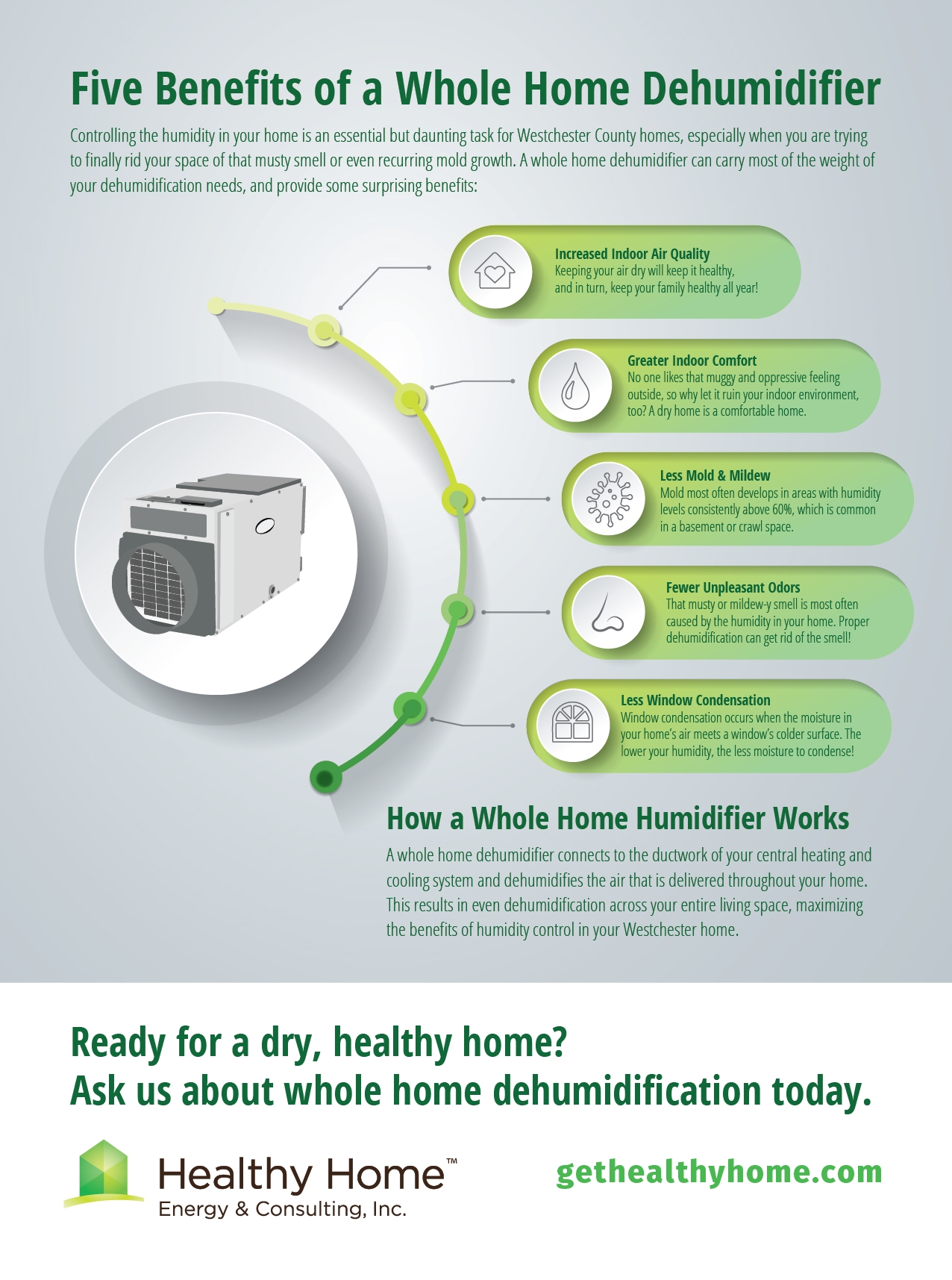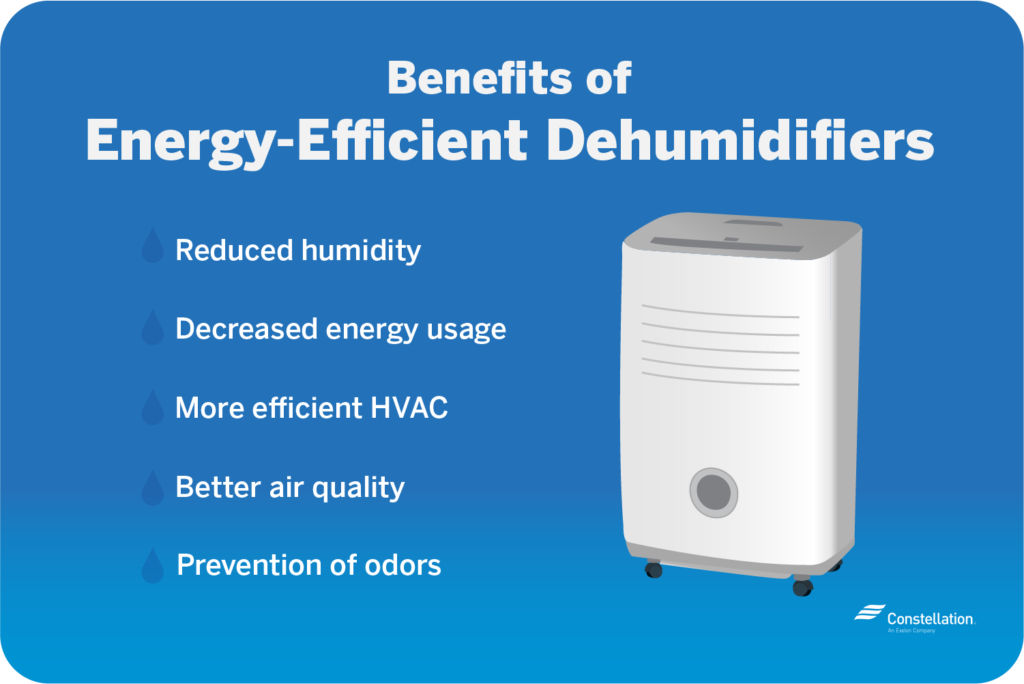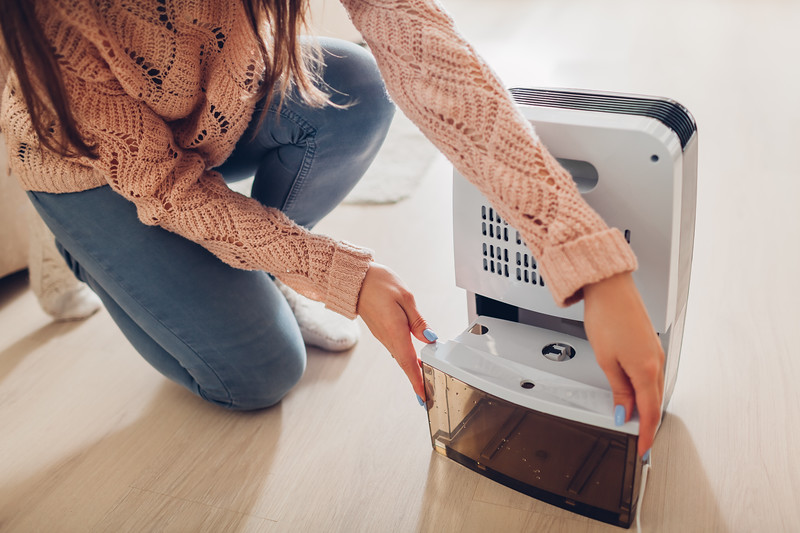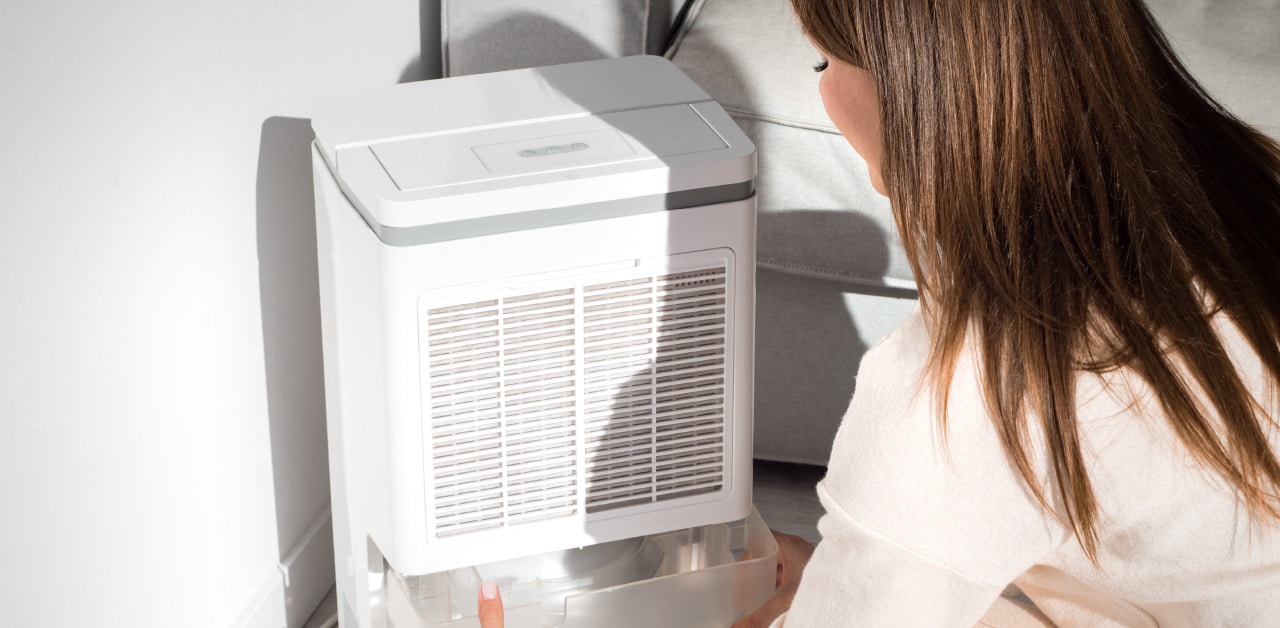Are you looking for a way to enhance your health and well-being? Look no further than dehumidifiers! These incredible devices have numerous benefits that can greatly improve your overall health. By reducing the level of moisture in the air, dehumidifiers can help alleviate respiratory issues, prevent the growth of mold and mildew, and even alleviate allergies. Say goodbye to stuffy noses, coughing, and that musty smell lingering in your home. Discover how dehumidifiers can transform your living space into a healthier and more comfortable environment.

1. Reduces Allergens and Dust Mites
1.1 Controls Moisture Levels
Dehumidifiers play a crucial role in controlling the moisture levels in your home, which can have a significant impact on your health. High humidity levels create the perfect breeding ground for allergens and dust mites. By using a dehumidifier, you can effectively reduce the humidity in your home and create an environment that is less favorable for these common triggers of allergies and respiratory issues.
1.2 Inhibits the Growth of Dust Mites
Dust mites thrive in environments with high humidity, making them a common concern for individuals who suffer from allergies. These microscopic creatures are a major trigger for asthma and allergic reactions. By using a dehumidifier to maintain optimal humidity levels, you can inhibit the growth of dust mites and minimize their presence in your home, thus reducing the risk of allergic reactions.
1.3 Minimizes Mold and Mildew
Excess moisture in your home can lead to the growth of mold and mildew. These fungi not only pose a threat to the structural integrity of your property but also have negative effects on your health. Mold spores can cause respiratory problems and allergies when inhaled. By utilizing a dehumidifier to control moisture levels, you can minimize the growth of mold and mildew, creating a healthier living environment.
1.4 Improves Indoor Air Quality
Indoor air quality is crucial for maintaining good health. High humidity levels can contribute to the accumulation of airborne pollutants, such as mold spores, dust mite allergens, and volatile organic compounds (VOCs). These contaminants can have adverse effects on respiratory health and exacerbate existing conditions like asthma or allergies. By reducing moisture levels with a dehumidifier, you can improve the overall indoor air quality, creating a healthier living space for you and your family.
2. Alleviates Respiratory Issues
2.1 Helps with Asthma Symptoms
Asthma is a chronic respiratory condition that can be triggered or worsened by high humidity levels. By using a dehumidifier to maintain optimal humidity levels in your home, you can reduce the triggers for asthma attacks and alleviate symptoms. The drier air created by the dehumidifier can help reduce the swelling and irritation of the airways, making breathing easier and reducing the frequency and severity of asthma symptoms.
2.2 Reduces Allergy Symptoms
Allergies are often aggravated by airborne allergens such as pollen, dust mites, and mold spores. By utilizing a dehumidifier to control moisture levels, you can effectively reduce the concentration of these allergens in the air, thereby minimizing allergy symptoms. It can provide relief from common symptoms like sneezing, coughing, itchy eyes, and breathing difficulties, allowing you to enjoy a more comfortable and healthier living environment.
2.3 Eases Breathing for COPD Patients
Chronic Obstructive Pulmonary Disease (COPD) is a progressive lung disease that makes it difficult to breathe. Individuals with COPD often experience increased sensitivity to changes in humidity levels. High humidity can make breathing more difficult and trigger flare-ups of symptoms. By using a dehumidifier to regulate indoor humidity, you can create a more comfortable environment for COPD patients and help alleviate their breathing difficulties.
2.4 Decreases the Risk of Respiratory Infections
Excess moisture in the air can promote the growth of bacteria, viruses, and fungi, increasing the risk of respiratory infections. By using a dehumidifier to maintain optimal humidity levels, you can create an environment that is less favorable for the growth and spread of these pathogens. This can help reduce the likelihood of respiratory infections, such as colds, flu, and other respiratory illnesses, keeping you and your family healthier.
3. Prevents Mold and Mildew
3.1 Maintains Ideal Humidity Levels
Mold and mildew thrive in damp and humid environments, making them common problems in areas with high moisture levels. By using a dehumidifier to maintain ideal humidity levels, typically between 30% to 50%, you can effectively prevent the growth of mold and mildew in your home. This is especially important in areas that are prone to moisture accumulation, such as basements, bathrooms, and laundry rooms.
3.2 Stops Mold Growth
Mold growth not only damages your home’s structure and aesthetics but also poses significant health risks. Exposure to mold spores can lead to respiratory problems, allergies, and even serious infections in some individuals. By controlling the moisture levels with a dehumidifier, you can effectively stop the growth of mold, protecting your health and preserving the integrity of your home.
3.3 Protects Furniture and Belongings
Excess humidity can cause damage to your furniture, upholstery, and other belongings. Wood can warp, fabrics can become musty and moldy, and electronics can suffer from moisture-related malfunctions. By utilizing a dehumidifier, you can protect your valuable possessions from the detrimental effects of high humidity, preserving their lifespan and quality.
3.4 Reduces Musty Odors
Musty odors are often associated with the growth of mold and mildew. These odors can permeate your home, causing discomfort and reducing the overall enjoyment of your living space. By preventing mold and mildew growth with a dehumidifier, you can effectively eliminate musty odors, improving the overall air quality in your home and creating a fresher and more pleasant environment.
4. Promotes Better Sleep
4.1 Reduces Night Sweats
Night sweats can disrupt your sleep and leave you feeling uncomfortable and restless. High humidity levels can contribute to excessive sweating during the night. By using a dehumidifier to control the moisture in your bedroom, you can create a more comfortable sleeping environment, reducing night sweats and promoting a restful night’s sleep.
4.2 Prevents Restless Sleep
When the air in your bedroom is too humid or stuffy, it can make it difficult to fall asleep and stay asleep throughout the night. By using a dehumidifier to maintain optimal humidity levels, you can create a comfortable sleep environment that promotes restful sleep. The drier air can help regulate your body temperature and reduce discomfort, allowing you to wake up refreshed and energized.
4.3 Enhances Sleep Quality
Quality sleep is essential for overall health and well-being. By optimizing the air quality in your bedroom through the use of a dehumidifier, you can enhance sleep quality. Improved air quality reduces the risk of irritation to the respiratory system, promotes easier breathing, and minimizes allergy triggers, all of which contribute to a more restful and rejuvenating sleep.
4.4 Alleviates Snoring
Snoring can be disruptive not only to your sleep but also to your partner’s sleep. High humidity levels can contribute to nasal congestion and swollen airways, increasing the likelihood of snoring. By using a dehumidifier to reduce moisture in the air, you can alleviate nasal congestion, allowing for easier airflow during sleep and potentially reducing snoring.

5. Protects Wood and Appliances
5.1 Preserves Wooden Furniture
Excessive moisture can have a detrimental effect on wooden furniture, leading to warping, cracking, and other forms of damage. By using a dehumidifier to maintain optimal humidity levels, you can prevent the absorption of excess moisture by wooden furniture, helping to preserve its natural beauty and integrity for years to come.
5.2 Prevents Wood Rot and Warping
Wood rot and warping are common issues caused by exposure to high levels of moisture and humidity. These problems can compromise the structural integrity of your home and require costly repairs. By utilizing a dehumidifier to regulate humidity, you can prevent wood rot and warping, ensuring the longevity and durability of your property.
5.3 Extends the Lifespan of Appliances
Appliances such as refrigerators, air conditioners, and washing machines are often susceptible to moisture damage. Excessive humidity can lead to rust, corrosion, and electrical malfunctions, reducing the lifespan of these appliances. By using a dehumidifier to maintain optimal humidity levels, you can protect your appliances from moisture-related damage, maximizing their lifespan and saving you money on frequent repairs or replacements.
5.4 Reduces Electronics Malfunctions
Electronics, such as televisions, computers, and gaming consoles, are sensitive to changes in humidity. High humidity levels can cause condensation to form inside electronic devices, leading to malfunctions and potentially permanent damage. By controlling the moisture in your home with a dehumidifier, you can reduce the likelihood of electronics malfunctions and prolong the lifespan of your valuable devices.
6. Enhances Energy Efficiency
6.1 Reduces Excessive Condensation
Excess moisture in the air can lead to condensation on windows, walls, and other surfaces. This condensation not only promotes the growth of mold and mildew but also affects the energy efficiency of your home. By using a dehumidifier to maintain optimal humidity levels, you can reduce excessive condensation and prevent potential damage to your property. Additionally, it helps to maintain a more comfortable and energy-efficient living environment.
6.2 Lowers Cooling Costs
High humidity levels make it challenging for your air conditioner to effectively cool your home. When the air is humid, it feels warmer, causing your air conditioner to work harder and consume more energy to maintain a comfortable temperature. By using a dehumidifier to remove excess moisture from the air, your air conditioner can operate more efficiently and effectively, resulting in lower cooling costs and energy savings.
6.3 Helps Air Conditioner to Operate Efficiently
Excessive humidity can put a strain on your air conditioning system, as it needs to work harder to remove moisture from the air. This increased workload can lead to wear and tear on the unit and potentially shorten its lifespan. By using a dehumidifier to control humidity levels, you can alleviate some of the strain on your air conditioner, helping it operate more efficiently and extending its overall lifespan.
6.4 Decreases Energy Consumption
High humidity levels in your home can make you feel uncomfortable and cause you to rely more heavily on your air conditioning system to create a cooler environment. This increased reliance on air conditioning leads to higher energy consumption and increased electricity bills. By using a dehumidifier to regulate humidity levels, you can create a more comfortable living space, reducing the need for excessive air conditioning usage and ultimately decreasing your energy consumption.

7. Protects Personal Belongings
7.1 Prevents Moisture Damage to Clothes
Excessive humidity can cause your clothes to feel damp and take longer to dry. This prolonged moisture exposure can lead to mold, mildew, and unpleasant odors. By using a dehumidifier to control humidity levels, you can prevent moisture damage to your clothes, ensuring they stay fresh, dry, and free from musty odors.
7.2 Extends the Lifespan of Books and Documents
Books, documents, and other paper-based items are prone to damage from high humidity levels. Excess moisture in the air can cause pages to become wrinkled, discolored, or even moldy. By utilizing a dehumidifier to maintain optimal humidity, you can extend the lifespan of your valuable books and important documents, preserving their quality and readability for years to come.
7.3 Preserves Musical Instruments
Musical instruments, such as guitars, pianos, and woodwind instruments, are susceptible to damage from fluctuating humidity levels. High humidity can lead to warping, cracking, and other forms of damage, compromising the sound and performance of the instruments. By using a dehumidifier to control the moisture in the air, you can protect your musical instruments from these issues and ensure they remain in optimal condition.
7.4 Keeps Electronics Safe
Electronics, such as smartphones, tablets, and laptops, are highly sensitive to moisture damage. High humidity levels can cause condensation to form inside electronic devices, leading to corrosion and malfunctions. By controlling the humidity in your home with a dehumidifier, you can protect your valuable electronics from moisture-related damage, ensuring their longevity and functionality.
8. Reduces Dampness and Humidity-Related Issues
8.1 Dries Wet Laundry
Drying your laundry indoors, especially during humid weather, can contribute to increased moisture levels in your home. This can lead to a damp and musty environment, making it challenging to dry clothes thoroughly. By using a dehumidifier, you can effectively remove excess moisture from the air and expedite the drying process, ensuring your laundry is dry and fresh, and preventing the development of dampness and mold.
8.2 Prevents Condensation on Windows
Excessive moisture in the air can cause condensation to form on your windows. This condensation not only obstructs your view but also promotes the growth of mold and mildew. By using a dehumidifier to control humidity levels, you can reduce condensation on windows, preventing potential damage and maintaining clear views.
8.3 Reduces Musty Smells
Musty odors are often associated with dampness and high humidity. These unpleasant smells can permeate your home and make it less inviting. By utilizing a dehumidifier to regulate humidity, you can effectively reduce musty smells and create a fresher and more pleasant living environment.
8.4 Decreases the Risk of Structural Damage
Excess moisture in your home can lead to structural damage, such as rotting wood, crumbling drywall, or peeling paint. By using a dehumidifier to control humidity levels, you can effectively reduce the risk of structural damage, preserving the integrity and longevity of your home.

9. Supports Healthy Skin
9.1 Prevents Excessive Sweating
High humidity levels can cause excessive sweating, which can lead to discomfort and skin irritation. By using a dehumidifier to control moisture levels, you can reduce sweating, keeping your skin dry and comfortable.
9.2 Decreases Skin Irritation
Excess humidity can exacerbate skin conditions, such as eczema or psoriasis, leading to irritation, itchiness, and inflammation. By maintaining optimal humidity levels with a dehumidifier, you can minimize skin irritation, allowing your skin to heal and remain healthy.
9.3 Minimizes Acne Breakouts
Humidity can contribute to clogged pores and excessive oil production, leading to increased acne breakouts. By controlling the moisture in the air with a dehumidifier, you can reduce the likelihood of acne breakouts, promoting clearer and healthier skin.
9.4 Improves Skin Hydration
Dry air can cause moisture to evaporate from your skin, leaving it dry and dehydrated. By using a dehumidifier to maintain optimal humidity levels, you can effectively improve skin hydration, keeping your skin moisturized and reducing dryness and flakiness.
10. Reduces Pest Infestation
10.1 Deters Dust Mite Infestations
Dust mites are tiny insects that thrive in humid environments. They are a common trigger for allergies and can cause significant discomfort. By using a dehumidifier to maintain optimal humidity levels, you can deter dust mite infestations and minimize the presence of these allergens in your home.
10.2 Discourages Cockroach and Silverfish
High humidity provides an ideal environment for cockroaches and silverfish to thrive. These pests can contaminate your home, trigger allergies, and pose a health risk. By controlling the moisture levels in your home with a dehumidifier, you can discourage their presence and reduce the risk of infestations.
10.3 Prevents Mold Mite Infestations
Mold mites are small insects that feed on mold. They are often found in homes with high humidity levels and mold growth. By using a dehumidifier to prevent excess moisture and mold growth, you can mitigate the risk of mold mite infestations and maintain a pest-free environment.
10.4 Keeps Spiders and Insects at Bay
Spiders and other insects are attracted to damp and humid environments. By using a dehumidifier to control moisture levels, you can create an environment that is less attractive to these pests, discouraging their presence and reducing the risk of infestations.
In conclusion, using a dehumidifier in your home offers a multitude of health benefits. From reducing allergens and dust mites to alleviating respiratory issues, preventing mold and mildew, promoting better sleep, protecting wood and appliances, enhancing energy efficiency, preserving personal belongings, reducing dampness and humidity-related issues, supporting healthy skin, and reducing pest infestations, the advantages of using a dehumidifier are vast. Invest in a high-quality dehumidifier today and enjoy improved health and well-being in your home.


Hi, I’m Cohan, the author behind Your Dehumidifier Guide, a website dedicated to helping you create a healthier and more comfortable living environment. With a tagline of “Breathe Easy, Live Better,” my ultimate goal is to provide you with the best dehumidification solutions for your home. Whether you’re looking for the perfect dehumidifier for your bathroom, small room, or basement, I’ve got you covered. Through in-depth reviews and comprehensive buying guides, I aim to equip you with the knowledge to tackle high humidity levels, prevent mold growth, and improve your indoor air quality. Trust me to be your ultimate guide in the world of dehumidifiers.